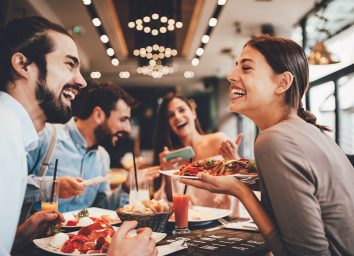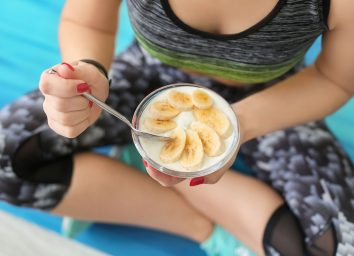10 Worst Dinner Habits Causing You to Gain Weight, Says Science
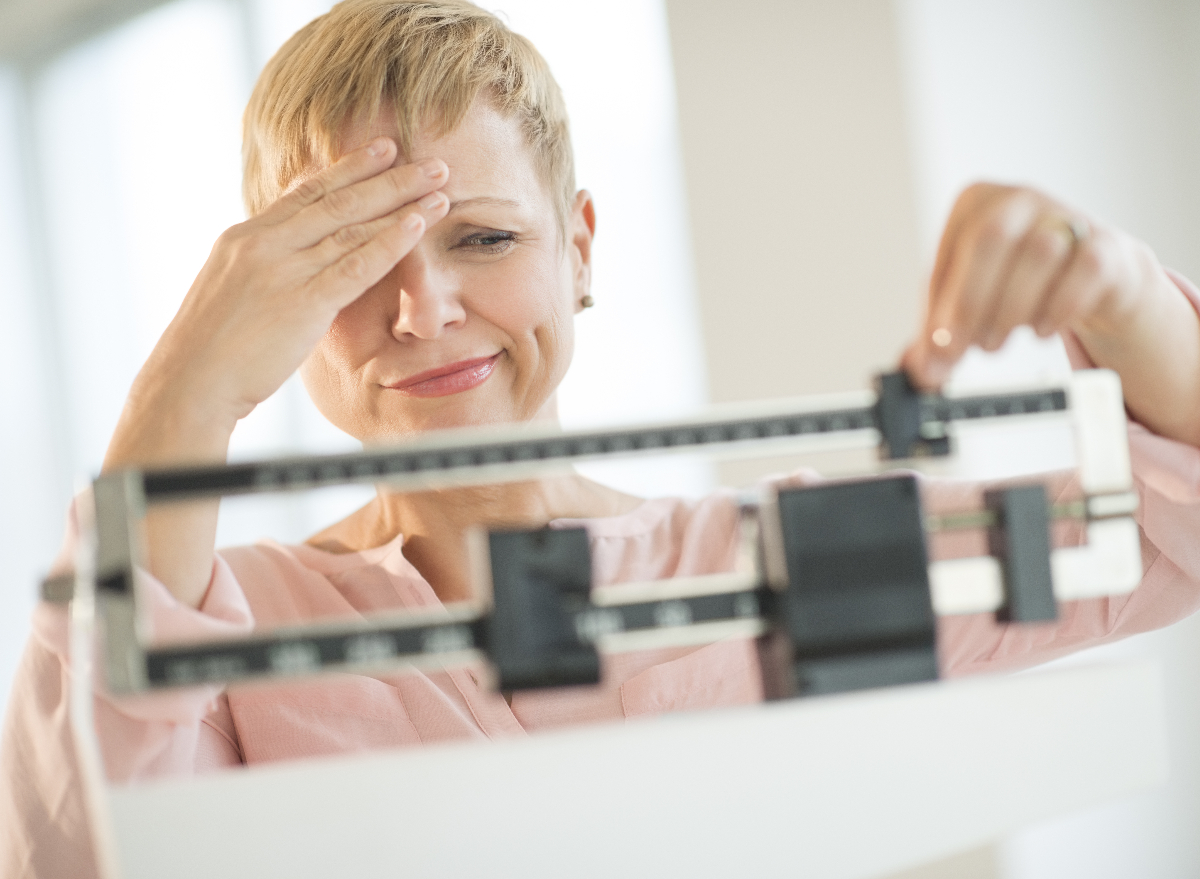
If you cook your own dinner at home, it's easier to commit to eating a dish that's both hearty and healthy. After all, it's ideal to feast on a meal that not only tastes great but also satisfies you. While making your own dinner is one way to avoid sabotaging your weight-loss goals, you may be guilty of some bad habits that are holding you back.
Don't worry, though—that's where we come in! We've rounded up the 10 worst dinner habits that cause you to gain weight. You put in the work to stay on course all day, so don't let a few bad choices in the evening mess with that progress.
You're adding too much salt.
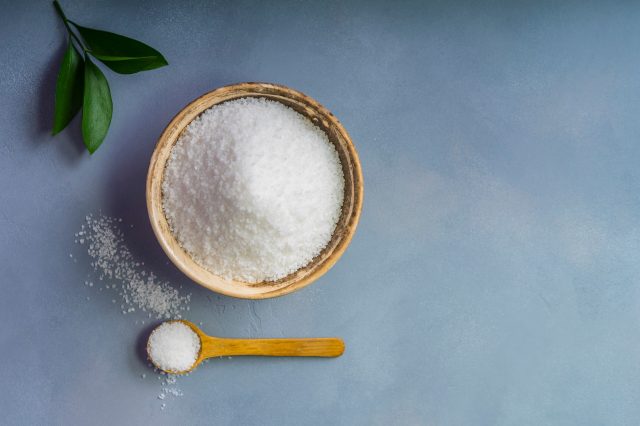
Throwing in a pinch of salt might be one way to add some flavor to your pasta dinner, but there is such thing as too much sodium. In fact, you can end up gaining weight if you regularly eat too much salt. Researchers at Deakin University found that consuming excess sodium can lead you to crave and eat more fatty foods overall.
Plus, you could develop an actual addiction. A study in Oxford Journal's Nephrology Dialysis Transplantation found that a salt addiction is very much real, and it's processed by the hypothalamus region of your brain. This is essentially how alcohol, cocaine, and opiate addictions are developed and interpreted, too. Scary stuff!
You're choosing the wrong sauce.
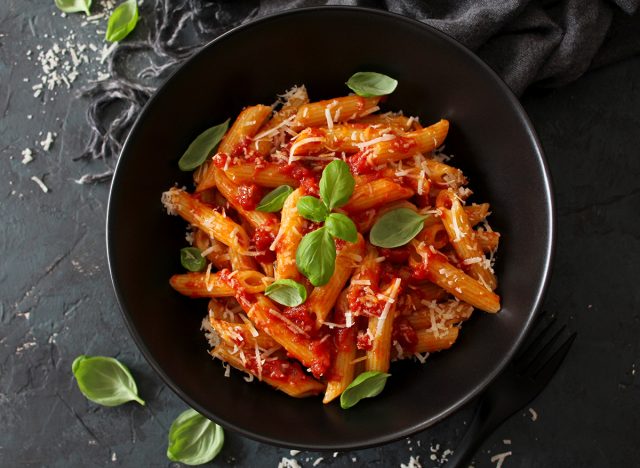
If you're a fan of making a meal that has tons of tomato sauce, you're not alone. Pasta needs sauce, right? But there is a way your sauce choice can be dangerous. Many store-bought, jarred tomato-based pasta sauces are actually loaded with sodium and added sugar, and they often contain eyebrow-raising ingredients like soybean oil and preservatives. Be sure you closely check the label before your next supermarket purchase. Or why not try making your own sauce?!
You're frying your food.
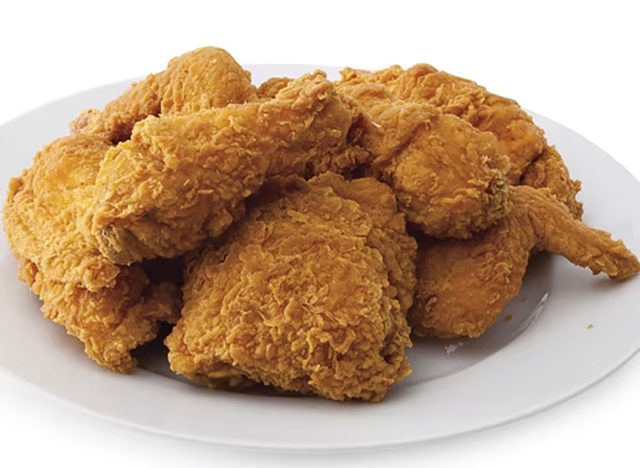
Think frying chicken at home is any healthier than ordering it at a restaurant? Think again: When you fry food, you're stripping it of important minerals, according to one study. Plus, frying food tacks on more calories and saturated fat.
You're using the wrong plate size.
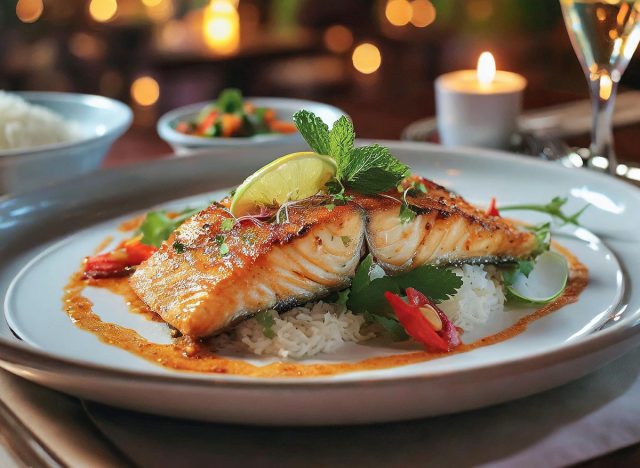
When it comes to your dinner, size does matter.
Think about it: If you eat on a bigger plate, your food looks smaller, so it's much easier to overload on calories. If you eat on a smaller plate, the serving size seems to be larger because the food fills up the entire plate. This tricks your mind into thinking you're about to eat more. Make sure you're sticking with smaller plates to help keep those portions under control!
You're overdressing your salads.

Having a side salad with dinner is a great way to get in your veggies, and eating it before your main course is a clever way to fill up so that you end up eating a smaller portion of your main course. A win-win! But the dressing that you choose to lather up your lettuce with may be problematic. If you're don't stick to the recommended portion size or select a dressing that's filled with added sugar and questionable ingredients, those extra veggies instantly become unhealthy.
You're eating too fast.

When dinner rolls around, you're hungry and ready to eat. If you eat fast, it makes it harder to notice exactly how much you're eating. One study in the Journal of the American Dietetic Association found that slow eaters who took their time ate 66 fewer calories per meal. So slow things down, and take your time—you might just end up getting fuller faster than you think.
You're eating in front of the TV.
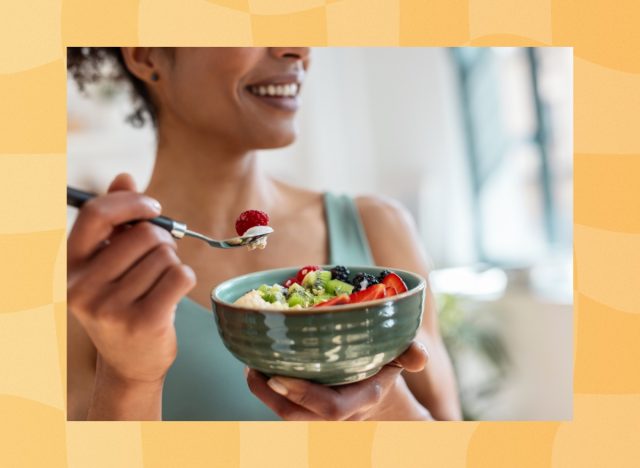
Chowing down on dinner in front of the TV might seem like a harmless way to unwind, but it's far from it. Eating in front of the TV is essentially distracted eating, and you may end up eating more if you're distracted.
A study published in the journal Food Quality and Preference found that participants who were distracted by white noise via headphones were less aware of the sound of the food they were eating. This caused them to eat more compared to the participants who could hear the food they were eating.
You're not rinsing canned foods.
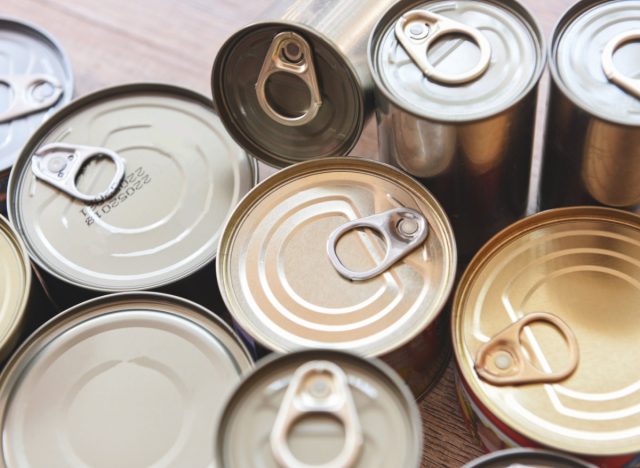
There's nothing wrong with adding canned vegetables and beans to your dinner, but make sure you're prepping them the right way. Canned foods are filled with liquids. If you don't drain those veggies or beans and give them a rinse, you'll wind up adding unnecessary sodium and extra starches to your meal.
You're not drinking water.

Sodas and other sweetened beverages are never an ideal beverage choice. That's why it's important to sip on water not only while you eat but also before you ever pick up your fork. One study found that drinking water half an hour before eating a main meal like dinner aids weight loss. Who knew a little H2O could do so much good?!
You're not eating at the right time.
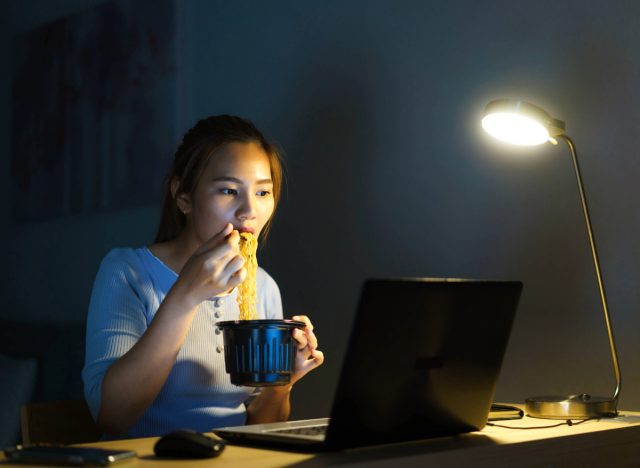
Yes, what time you eat dinner matters. If you end up working late and eating later, there's a good chance you're going to crash and fall asleep not too long after with your belly full. That's not the best move!
Ideally, you'll want to finish eating dinner (and any dessert!) at least two to three hours before going to bed. That alone can decrease your cancer risk, according to research.
Overall, it's much healthier to eat dinner well in advance of bedtime. If you really want to make sure you stay healthy all day long, you'll want to avoid these bad breakfast habits that are ruining your day.


